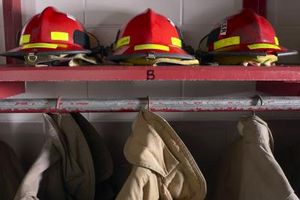By Jim Cline
 This is the fifth in a series of articles on recent Interest Arbitration decisions. A summary of all recent arbitration decisions since 2008 is available on the Premium website. This is a decision by Arbitrator Ken Latsch concerning the Everett Firefighters.
This is the fifth in a series of articles on recent Interest Arbitration decisions. A summary of all recent arbitration decisions since 2008 is available on the Premium website. This is a decision by Arbitrator Ken Latsch concerning the Everett Firefighters.
The parties arbitrated 15 different issues. This article will cover some of the highlights.
Comparables. The parties agreed on Federal Way, Kent, Kirkland, Renton, Shoreline, and Auburn (Valley Regional Fire Authority). Additionally, the Union sought to add Bellevue and Snohomish County District 1, and the City sought to add Bellingham and Central Kitsap Fire District and South Kitsap Fire District.
Arbitrator Latsch agreed principally with the union’s selection methodology which gave great weight to the immediate labor market and applied a selection band of -50/+200. He agreed to add Bellevue and Snohomish Fire District 1, but rejected the City’s proposal to add Kitsap and Bellingham comparables.
The Union proposed an additional 3A% over the term of the 3 year contract above CPI. The city proposed a three year increase of 2-2-1%. The parties differed on their comparison model, with the Union using top step pay and the City using net hourly wage. Without a detailed explanation as to his rationale, Arbitrator Latsch awarded a three year increase of 3.0-2.6-1.4% for the years 2012 through 2014.
Deferred Compensation. The Union proposed an increase from the current $130 per month flat amount to 3%. The City proposed to maintain the current amount. There was no discussion in the decision as to whether or not Everett Firefighters participated in Social Security or were exempt, which is one of the primary arguments for supplemented deferred compensation. Arbitrator Latsch ordered an increase from $130 to $150.
Health Insurance. The City proposed placing the Firefighters under the City’s self-insurance plan, something the Union resisted. The Union suggested that it would willingly pay more of a premium to maintain the current plan. It also proposed an alternative plan. The Arbitrator rejected that approach and moved the Firefighters to the Citywide plan, citing the importance of uniformity among the City employees.
Apparently the Employer’s contribution had been capped in some manner not clearly explained in the Award. The Union sought a reimbursement for the amount of the premium contributions the employees had been paying out of pocket as an apparent result of the delay in reaching an agreement. The Arbitrator ordered that the City pick up that expense.
At least at the front end of the CBA, the Firefighters did pick up some additional wages to partially offset the later diminished health insurance benefits. Many of the details concerning health insurance are not fully explained in the Award, making it somewhat difficult to evaluate the full extent of the differences between the competing proposals.



